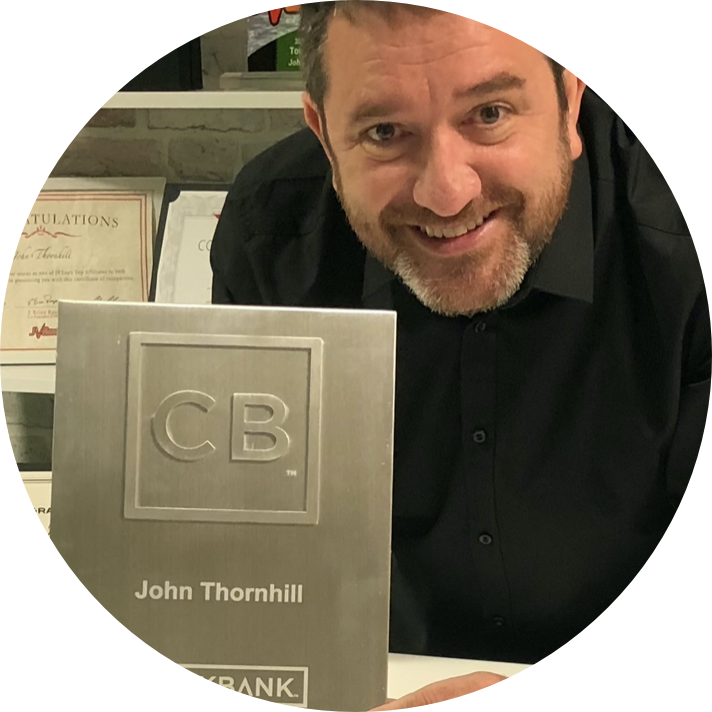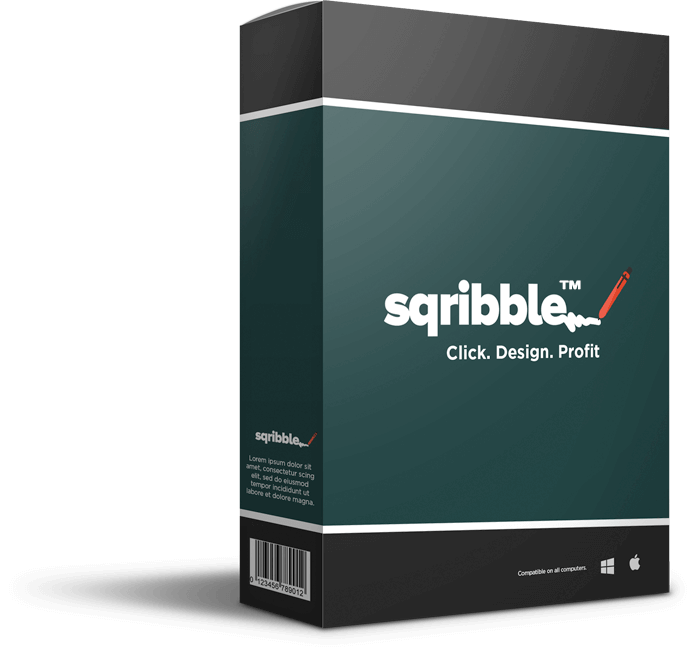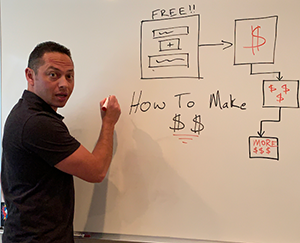Gain Price Confidence: How to Stop Undercutting and Start Profiting written by John Jantsch read more at Duct Tape Marketing
The Duct Tape Marketing Podcast with John Jantsch In this episode of the Duct Tape Marketing Podcast, I interviewed Carolyn Crewe, an expert on pricing strategies for businesses. Crewe’s extensive background includes earning an MBA, completing pricing courses at MIT, and nearly a decade of hands-on experience in the field. Her journey into pricing expertise […]
Build Success from a Struggling Agency with a Multimillion-Dollar Pivot written by John Jantsch read more at Duct Tape Marketing
The Duct Tape Marketing Podcast with John Jantsch
In this episode of the Duct Tape Marketing Podcast, I interviewed Chris Martinez, a dynamic entrepreneur who transformed his struggling startup into a thriving multimillion-dollar agency. Chris Martinez is the CEO and founder of DUDEAgency.io, a business he grew from scratch into a multimillion-dollar success, earning accolades such as the Stevie Award for Minority-Owned Business of the Year and a Silver Medal for Most Innovative Company Under 100 Employees.
He oversees operations in the U.S. and Mexico and hosts the popular podcast Operation Agency Freedom, which focuses on marketing and entrepreneurship. His remarkable journey highlights the power of strategic pivots and the importance of embracing change to achieve business success.
Key Takeaways
Questions I ask Chris Martinez:
[00:58] Tell us about your journey before Dude agency?
[03:43] Why the Pivot, why do businesses pivot?
[06:57] How much of your business was serving agencies back in, in the outsourcing model?
[07:19] Was the pivot a sudden shift or a gradual one?
[09:21] How does a message to pivot transition as a value proposition?
[10:51] What opportunities have you seen in recent years that create a need for for the services you offer?
[17:01] What are the biggest bottlenecks that you’re solving?
[19:00] What’s the average retention on an agency?
[20:28] How does your process work, do you begin with an audit?
[23:15] Tell us about the event you have coming up
More About Chris Martinez:
Like this show? Click on over and give us a review on iTunes, please!
Connect with John Jantsch on LinkedIn
John (00:08): Hello and welcome to another episode of the Duct Tape Marketing Podcast. This is John Jantsch. My guest today is Chris Martinez. He’s the CEO and founder of Dude Agency io, a business he grew from scratch into a multimillion dollar success earning accolades such as the Stevie Award for minority owned business of the year, and the Silver Medal for most innovative company under 100 employees. He’s also author of, it’s Not Just a Website, the Small Business Owners Blueprint for Taking Your Business Online, and we’re going to talk a little bit about his unique and varied entrepreneurial journey. How’s that? Hey, Chris, welcome back to the show.
Chris (00:46): Hey, thanks so much for having me on. It’s been way too long since we last talked, but I’m glad that we can connect again. So
John (00:52): Maybe in your case, because somewhat we’re going to talk about is a pretty significant pivot for your business. Let’s talk a little bit about before Dude Agency journey and then we’ll get into, dude.
Chris (01:04): Yeah, so well, let’s go back to 2007. So that’s the year that my dad passed away at Pancreatic Cancer, and that kind of gave me the inspiration to start my very first business, which was a soccer magazine, which failed miserably. I made every possible mistake that you could make, and then after that I had to pick up the pieces of my life again, and I got into building websites, so I taught myself how to build websites. Eventually that turned into learning about traffic. Then I got a job in digital marketing. Then I started my first agency in 2012, and basically we were building websites for the worst possible niche, in my opinion, solopreneurs. So we were building these websites for solopreneurs and basically helping them to build an online presence. And we got to around a couple hundred clients on retainer, and along the way I had built a team in Mexico.
(01:58): So one of the unique things that we were doing on the operation side is I was living in San Diego and I went across the border. I set up a Mexican corporation, which is very difficult to do, and I was able to kind of tap into this hidden talent pool of designers and developers down in Mexico. Now when I did that was 2005. It was unheard of for people to go down into Mexico. It was very difficult to send money. It was hard to recruit people because things like Indeed or LinkedIn recruiting, that wasn’t really a thing nine years ago. So we had this little unique way of being able to find talent that helped me to grow my own agency. Fast forward to 2007, I’m like, I wonder if I can help other marketing agencies get access to this hidden talent pool. And that’s when dudes started. And so that basically takes us up until around, well, we won all those Stevie Awards, we were doing millions and millions of dollars in revenue. Things are going really good, and that basically takes us up to about last year when things start to change.
John (03:00): So it’s funny how many businesses you did outsourcing to fix your own need and turned it into a business. I mean, I can’t tell you how many entrepreneurs have come on the show and that was their journey, a really common story. So you’ve made a pretty significant pivot in dude. In fact, you’re not doing the outsourcing model anymore. So I mean, obviously begs the question,
Chris (03:22): Why did we do this? Yeah, no, it’s a great question and I’m glad you asked it because I’ve always been an open book. So what happened after the pandemic is actually the pandemic was very good for us business wise because everybody was like, I need to get my stuff online. Agencies started to blow up and get really busy, and so they reached out to us for the outsourcing support. And of course we had this unique talent pool in Mexico and we had the Mexican corporation so that we could recruit them, pay them benefits. We had first we had a big giant office in Tijuana, but then we expanded and started hiring people all over Mexico. So we’ve hired hundreds and hundreds of employees, but we had over a hundred employees at any given time. And so then we fast forward to around let’s say 2023, and we start to recognize what the world is changing, and one of the things was our unique value proposition or the thing that we had that nobody else had of being able to have this business in Mexico.
(04:26): Well, it wasn’t that special anymore. There’s services out there that people can use to actually much more easily set up a company if they want to in another country, in Mexico or anywhere in the world, it’s very easy to now send money to Latin American countries, which even in 2019, PayPal was not even a thing in Mexico. It was super hard to send people money. And so that kind of special sauce that we had in Mexico was starting to discipline, and that’s just the nature of entrepreneurship. Things are going to change. It’s not guaranteed that our special sauce isn’t is going to be relevant a year from now. So we started to see that writing on the wall. We also started to see that the needs of our clients were shifting. They didn’t really want to have that third party in the middle. A lot of them wanted to have somebody that could work for them directly.
(05:22): And then the problems that we were solving for our clients as well started to shift. So they started to ask us things like, well, you guys are really efficient with your SOPs. How do you do that? Can you show me how to be more profitable in my company? I want to do an exit in a couple of years. Do you have any expertise on that? I want to become a better leader. They started asking us all these questions. Naturally we were like, well, yeah, we can show you what we did, not even thinking that it was a business potential. If anything, it was like a retention strategy. So we started to help the clients with it, and then eventually the clouds went away and we were like, okay, cool. The outsourcing is not going to be a viable business model for the future because of technology and all the other things that are going on.
(06:07): Oh, on top of that, the Mexican government that they have in place was starting to raise taxes and making it very difficult to actually turn a profit in Mexico with the outsourcing business. So we saw the writing on the wall and we’re like, okay, well, but there’s this other side of the business where we can not only have an impact on the agencies and helping them to fulfill projects, but now we can help them to transform their business altogether. And so now companies come to us and they have these problems with fulfillment issues of course, but also SOPs, profitability, leadership, HR issues, and they see that their agency can become a $5 million agency, a $10 million agency, but they don’t exactly know how to connect those dots, and that’s where we come in and we help ’em solve that problem. Doing the management consulting.
John (06:57): How much of your business was serving agencies back in the outsourcing model?
Chris (07:01): It was an add-on essentially. It was something that we’d added on to our clients. Now, not everybody took advantage of it. I would say maybe 30 to 40% of our clients took advantage of the,
John (07:13): No, I guess I was asking how much of your book of business was with agencies? Was that a huge part,
Chris (07:19): Your clients? Oh, we only worked. Yeah, we’ve only worked with marketing agencies since the beginning. That was something that we also figured out very early on is we had to pick a niche.
John (07:27): Yeah, yeah. Okay. So how does somebody go? I mean, that’s a pretty radical shift. I know that like you said, you started dabbling in it in some ways because of people were asking you for it. But was there a day where you said, well, we’re not doing this anymore. Sorry, now we’re doing this.
Chris (07:44): So this is the benefit of having your financials and having a really thought out roadmap of how you want to get to the end goal is last year, so one of our products which we called the pod product, we looked at the numbers and we were losing like $17,000 a month and there’s no way to fix that problem because if we raise prices on that, we basically price ourselves out and the clients are like, well, I can just go hire my own people and I don’t have to use this model. So that was a very easy decision to kill off that product because otherwise we’re going to go broke. We can’t continue to lose $17,000 a month for very long. Then we recognized that was kind of like the turning point where we recognize we have to separate ourselves from this part of the business. And so actually last month we decided that we were going to accelerate our timeframe of just basically killing off all the outsourcing and we’re shifting all of those outsourcing team members directly to work with our agencies. So they get to keep their jobs, the agencies get their team member, everybody wins. We were planning on doing that in January of 2025, but we decided, you know what? We got to do it now. So we just did it in March and that’s the split. So now we’re a completely different business.
John (08:57): Okay. So let’s talk about some of these agencies that you’re serving. I think this is a relevant question. It might be a hard question or sound like a hard question, but I think it’s a relevant, you’re going back to probably some of the same folks you serve, right? Obvious, go back to people who already know you. Sometimes I’ve seen it in my business over the years. Sometimes to go back to an existing client say, I know you knew this is this, but now we’re this. How has that message transition, value proposition going?
Chris (09:25): This is something that I completely underestimated. We started doing the consulting, we stopped taking on outsourcing clients early last year, and I underestimated how much work it was going to take to convince people that we are now doing something different and a lot of those clients will never transition. Some of my great friends that I’ve made as clients as well, they still only saw me as the outsourcing person. So you kind of have to approach it like you’re reinventing the business from day one from your marketing, everything. It’s just the way that it is. I can’t get mad at them, it’s just they know me as something and their minds will never change. And so I just have to say, okay, well, it is what it is, and now we have to go after other clients. The good news is that our new clients that have truly embraced us on the consulting side are seeing insane results. We’re making millionaires, cash millionaires every day. So maybe one day those clients that said, Hey, I don’t want to try out for that stuff, maybe they’ll come back, but it’s okay if it doesn’t. It’s just part of life.
John (10:34): I think you’re right though. It’s like a new business. So in that regard, you got to prove yourself, right? Exactly. Just because you had some trust with somebody doing something else, it doesn’t always transfer. As I said, I’m not surprised that was kind of what you experienced because I’ve seen that over the years as well. So let’s talk a little bit about the agency world. I don’t know what window you want to use last four or five years. What’s going on if anything in the industry that’s really making or you believe at least is making the need for what you’re offering may be more relevant even?
Chris (11:09): Yeah, it’s a very interesting time. Obviously the technology right now with AI technology is putting a lot of people on edge. A lot of people are wondering, am I going to have a job? Is AI going to be able to replace myself? What I like to ask in a roundabout way, I’m going to get back to your question, is what are the things that are going to be the same in five years? Let’s talk about that. What are the things that are going to be the same in five years for customers? They’re still going to struggle with technology. They’re still going to need leads. They’re still going to need ways to generate new customers. They’re still going to need somebody to help them get through all the craziness of running a business. So if we know that those things are going to be the constant, how can we adjust our company so that we can skate to where the puck is going to quote Wayne Gretzky. So if that’s the case, the technology that’s coming or that is here already, let’s just say AI for example. There are some things that we’re not going to need people for, but there’s a lot of other things that we are going to need people leveraging that technology,
John (12:21): Maybe even more people for
Chris (12:23): Maybe. And what’s really interesting is that if you look at the history of technology, like the computer, the laptop computer was supposed to make things so much easier. How much more complicated are our lives? Because of that, we can’t get off of our phones because of technology. So I personally believe that I love Star Wars obviously to see my background, I personally believe that everybody is going to have their own version of C3 PO at their disposal, and so it will allow you to do a lot more things a lot faster, but there are definitely going to be jobs that are going to go away. So as an agency owner, to get back to your question, it’s imperative that we recognize what’s going to be true in five years and then what things we can use that are going to allow us to skate to where the puck is going. So leveraging AI for sure, you will be able to get more done a lot faster with way less people. The world is going to need more problem solvers and less button pushers. This isn’t new though. This has been going on for years. You
John (13:28): Bet.
Chris (13:30): The other thing is that our industry in digital marketing has grown up, and so where you could build a business because you were really good at technology or you’re really good at running ads, for example, you can’t just get by on that. You have to learn how to run the business too. You have to get familiar with the things like cost of goods sold and profit margins and your churn rates. You have to understand actually how to run the business. We are the days of where the industry was just kind of growing up or over we’re growing.
John (14:08): I mean, there’s a bunch of people that made a whole bunch of money just because people didn’t know how to run Facebook ads and those Facebook made it really easy. They gave us all the data. We got lazy, and what I think is actually the demand and need for strategy and orchestration of all the moving parts is really where the fulfillment piece is. I mean, just like you said, somebody just wants a website, pay somebody a couple hundred bucks and we can argue if it’s any good, but they can get it up for you. So the days when people think they can just sell tactics, I think are done
Chris (14:42): A hundred percent, a hundred percent.
Speaker 3 (14:44): Duct tape marketing really helped me to shave at least six to eight months off of work that I was dreading after leaving the corporate world. Even before I participated in the agency intensive training, I had already landed my first customer. This in essence, more than paid for my investment in Duct Tape Marketing.
John (15:02): What you just heard was a testimonial from a recent graduate of the Duct Tape Marketing certification intensive program for fractional CMOs marketing agencies and consultants just like them. You could choose our system to move from vendor to trusted advisor, attract only ideal clients and confidently present your strategies to build monthly recurring revenue. Visit dtm.world/scale to book your free advisory call and learn more. It’s time to transform your approach. Book your call today, DTM world slash Scale.
Chris (15:40): And even what’s the Elementor for example? They have a new AI builder. I haven’t tried it yet, but those things are only going to get better. I just listened to a podcast interview of the CEO of OpenAI and chat. GT five will be coming out soon. He says, chat, GT five makes chat GT four an embarrassment for me. He said, very soon AI will be able to duplicate or do the work of an average level employee. There’s no stopping this train. It’s coming right.
John (16:12): Hundred percent, a hundred percent. But I think in some ways the push to that kind of technology, and let’s face it, roboticness almost, I think it’s going to make the people that realize the human side is still going to be such an important fact. Maybe more important moving forward.
Chris (16:30): Yes, definitely. You have to be able to take care of your people. So we see agencies that are really good, like lead generation for example. They can make that phone ring, but if they’re not good at managing the relationship with the customer’s going to leave because they’re going to say, well, John’s getting me leads, but I don’t really think he cares about me and this other person keeps telling me that they can do it better, faster and cheaper. I’m going to give him a shot. John probably won’t even recognize that I’m gone and I can always go back, but they never go back. So you got to learn how to manage the relationships.
John (17:01): So what are the biggest bottlenecks that you’re solving?
Chris (17:04): The first one is profitability. So way too many agencies come to us and they’ve mastered things that you teach the strategy piece, but what’s driving them crazy is that at the end of the month, there’s just not enough money left over for them. It’s like, man, I’ve been struggling doing this for 10 years. Why am I still only making 80, 90 grand a year and working 70, 80 hours a week? So that’s probably the number one thing, and they’ve basically just had enough. All the clients that come to us, they’re just tired of being stuck and they know that there’s a problem. They’ve tried everything out there. They’ve tried EOS, they’ve tried going to mastermind groups. They need somebody to come in and basically help them help identify the root cause of what’s going on, and then let’s figure out how to solve that problem. So that’s the first one. The other one is their churn rates are too high. If the churn rate is too high, usually that’s a problem, that there’s an issue or that’s an indicator that there’s an issue with delivery. Clients aren’t getting results, or we’re not managing those
John (18:03): Relationships or they’ve got the wrong clients or
Chris (18:05): They got the wrong clients, right? Yeah, that’s you. So we might have to look at the entire business model and the niche and those types of things. So yeah, those are the big ones. The profitability, and also I would just say thirdly is just leadership. Something that’s not really taught or at least emphasized in our industry, it’s always tech. That’s what gets clicks on the Facebook ads. That’s what draws people to the conferences is the latest SEO thing and the latest PPC thing and the latest AI thing, but actually learning how to manage people. That’s not something that’s really taught. So they come to us and they need that issue. They say, Hey, I’ve got these great people. I dunno what I’m doing, and I’m pretty sure they don’t know what they’re doing and we’re making it work, but man, it’s so difficult to get it to go in the right
John (18:52): Direction. You mentioned the idea of churn. What do you find is, especially in a retainer kind of agency business, what do you find, or I’m just curious if you have a number, what’s the average retention on an agency?
Chris (19:04): So your goal as a marketing agency should be 3% churn per month. Anything over 3% means you have room for improvement. We have agencies where their churn rates typically in the one to 2%, but that’s because they know how to manage the clients and make sure that they’re getting the client’s results and managing those relationships. Every agency is a little bit different, but if you analyze the reasons why your clients cancel, it typically comes down to about three, maybe four or five common things. A lot of it has to do with expectations. So if your onboarding isn’t as thorough, your clients or the sales team, maybe they promised the sales team promised them 80 leads a month, and you’re like, well, we can only do 20, so we got to fix those little problems. So managing things like that helps a ton, but there’s a financial case. Why you also want to keep that churn underneath 3% is basically the difference between 3% and 4% churn is massive in terms of lifetime customer value.
John (20:10): Well, and let’s talk about, you’ve got to build capacity to a certain level, so all of a sudden you’re losing clients. It tears into your profitability because you’re still paying the capacity for the capacity. Absolutely,
Chris (20:21): Absolutely.
John (20:22): Let’s give us a flavor of, just to wrap it up today, if somebody’s like, I want to hear what Chris is doing out there, how does your process work? Is there an audit evaluation? We do.
Chris (20:31): What do you do? I learned this from you actually. So the first thing that we do is kind like a strategy session. So you book a call with us, we’ll jump on for 20 minutes, ask you a handful of questions, and basically identify if it’s something that we can help you with, if we can help you. Then the next step is what we call a business analysis, and that’s where we jump on two live calls. The first one is where we do a review of your org charts, or if you don’t have an org chart, we build it out for you. We review all the KPIs for the different leadership team seats and just talk about the overall infrastructure of the company and help you identify if there’s any gaps. The second piece of it is we jump on another call prior to that call, you’re going to send us 12 months of your p and ls.
(21:14): So these are the facts, these are the numbers. So we’re going to go through the numbers and we’re going to create what’s called a proforma. Proforma is essentially a three year financial plan. It’s going to list out all your budgets, sales targets, churn rate goals, all that stuff, and we’re going to show you, hey, if you continue on your current trajectory, this is where you’re going to end up in 20 24, 20 25, 20 26. And then if you make these little changes, this is where you’re then going to end up at 20 24, 20 25, and 2026, and we pair that with your goals too. So if you say, Hey, I’m at a million dollars in revenue now I want to be at 2 million next year, we’ll make sure that you see exactly what you need to do to hit that target, and then that’s basically it. You can take that roadmap and implement it on your own or we can talk about how we can help you with that.
John (22:02): So is there a perfect size or maybe a minimum size even business that really this makes sense for? I mean, I know you make a case for saying anybody who’s trying to grow anything it makes sense for, but is there a point at which you think this is something that really somebody needs to explore?
Chris (22:17): Yeah. Prior to launching this year, we had a minimum of $500,000 a year in revenue. We’ve created some new products, so we can go as low as around $200,000 a year in revenue. There are some things that you absolutely have to have in place. So you have to have employees. You have to have employees, and you have to have current clients. We do not work with startups. They can absolutely ing digest our content, and I’ll jump on a call with you if you want to, just to give you some advice. I love helping people, but what we teach, you have to have the ball rolling sense. You have to have people, and you have to have
John (22:55): Customers.
Chris (22:56): Yeah, awesome. The ones who were really able to help the most, though, they’re in that seven 50 to $3 million a year range. They are already have got really good momentum. They probably got some leadership team members in the seats. Yeah,
John (23:08): They’re starting to create new problems.
Chris (23:11): Those ones, we kick butt for those ones. It’s really fun.
John (23:15): Chris, you have an event coming up. You want to share some info on that,
Chris (23:18): Let you Oh yeah, absolutely. Thanks so much. So we have our next live event coming up in San Diego. It’s going to be August 15th to the 17th. It’s called Agency Freedom Live. You can go to www.agency Freedom Live. So in the past we’ve done like four of these agency Freedom Lives focused on three different things, and we try and cram everything into those three days. So it’s talking about people and processes and profitability and training stuff. So we’re in the classroom all day long. It’s a lot. It’s super, super valuable. But this time we’re going to do it a little bit differently. So we’re going to focus the three days just on getting the right people in your agency. This is one of the things that people that agencies really struggle with. You have to have great people in your company to help you grow.
(24:05): You can’t just do it all on your own, and we’re naturally not really trained or we don’t really know what we’re doing. So we’re going to be focusing the three days on hiring, training, scaling up your people, leadership, three days, all in that, plus a ton of networking. We got a lot of networking stuff. Even when we’re in the classroom though, we’re not going to be really sitting there lecture style. We’re breaking people out into groups. They’re going to be working on projects together, learning together, presenting. It’s going to be so much fun. I’ve been to a lot of conferences. I don’t think there’s ever been a conference like this before for agencies. So that’s going to be happening August 15th through the 17th. If you get VIP, you get the 14th as well.
John (24:45): Is there a website that you’d send people to learn about
Chris (24:47): That? Yeah, agency freedom live.com. Awesome.
John (24:50): Awesome. All right. Well, Chris, I appreciate you taking a moment to stop by the Duct Tape Marketing Podcast and hopefully we’ll run into you one of these days out there on the road.
Sign up to receive email updates
Enter your name and email address below and I’ll send you periodic updates about the podcast.
Recommended Story For You :

How To Make $3493 Commissions Without Doing Any Selling

Successful dropshippers have reliable suppliers.

People Think I Use A Professional Voiceover Artist. NO! I Just Use Speechelo!

Make Money Testing Apps On Your Phone Or Tablet

Make More Money or Lose Everything

Sqribble Is The ONLY eBook Creator You’ll Ever Need.

Work & Earn as an Online Assistant

Create Ongoing Income Streams Of $500 To $1000 Or More Per Day

It's The Internet's Easiest Side Business.






